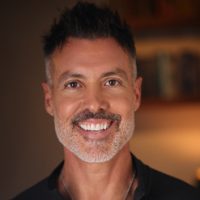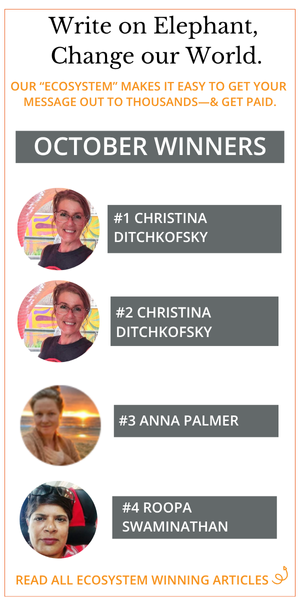When I was young, I felt I couldn’t be myself.
Growing up, there was no room for me to be gay. There were no words of reassurance, no signs that I would be accepted, no space where my identity could fully exist.
So, I did what many children do—I hid parts of myself I thought were unlovable. I learned to act how I thought little boys should act, to make myself small, to become what I needed to be to fit in.
Whether you can relate to coming out of the closet or not, we’ve all had the experience of hiding parts of ourselves in order to belong.
Children are constantly looking for reassurance from the adults around them that who they are is okay. When we’re children, we learn, in one way or another, what parts of us are acceptable and which are “too much.” We hide our feelings so we don’t risk losing love, we swallow our truth because it might push people away, and we become who we think we need to be to earn approval from others.
I remember thinking that if I could just be “better”—more masculine, more interested in sports—maybe I’d feel like I belonged. But as a child, I didn’t question whether it was society or my environment that was the problem. I just assumed that I was. And so, I internalized self-blame, developed limiting beliefs as a defense mechanism to protect the people who were supposed to protect me.
When we consciously begin doing the work to heal our past, it’s not about blame—it’s about understanding. The more we understand our lives and what influence our beliefs, the more we realize that healing requires courage and honesty to see things clearly, not to vilify, but to set ourselves free.
I once heard that it’s easier for a child’s psyche to believe they were a bad child with good parents than to face the devastating truth that they were actually a good child with bad parents.
As kids, we don’t get to question our caregivers. We rely on them for food, shelter, and safety. Our parents are even our first experience with the notion of a “higher power.” So, when things intuitively feel wrong—when we learn that love is conditional, when affection is mixed with control, when we feel unseen or unheard—our innocent hearts and minds do what they must to make sense of it all.
The easiest way for a child to cope is to unconsciously protect the idea of the “good parent” at the expense of their own sense of self. It’s too overwhelming for a child to acknowledge that the people who were supposed to love them might have failed, so they turn inward, believing they are the ones who need to be fixed.
If we were the problem, we could change, and maybe then we could earn the love we so desperately needed.
Then, there comes a time in our life when something shifts. Maybe it’s in therapy or maybe it’s from a spiritual awakening, or reading a book. Maybe it’s a heartbreak that cracks us open. Or maybe it’s simply the exhaustion from carrying a burden that was never ours to carry. Suddenly, we’re able to admit to ourselves the truth. We were never bad. We were never too much. We were just kids doing the best we could with what we were given. And maybe—just maybe—our parents weren’t the heroes we needed them to be. Maybe they were flawed. Maybe they were struggling. Maybe they were doing their best, but their best wasn’t actually enough for us at the time.
This realization isn’t meant to villainize our parents. It isn’t meant to cause us to stay stuck in blame or resentment. It simply means we allow ourselves to hold the complexity of our past without continuing to blame ourselves so that we can heal.
I often invite my clients to consider that multiple things can be true at once—we can love our parents and recognize that some of their actions caused harm. Holding two truths doesn’t negate the love we feel for them, or even that they gave, but it allows us to honor our pain thereby lessoning its grip on our lives.
Unburdening self-blame is liberating. It gives us back our power. It allows us to rewrite our story, set boundaries, build relationships that nurture rather than deplete us, and create a life that reflects the good we feel about ourselves.
It also reminds us that we are whole, worthy, and lovable exactly as we are—without conditions.
If you’ve consciously or unconsciously carried the burden that you were ever the problem—know that it was never truly yours to hold. The truth is, you were a good kid trying to make sense of a world that didn’t meet your needs.
Allowing this shift in our consciousness—that we weren’t bad kids with good parents, but good kids with parents who fell short—changes everything. It enables us to reclaim our narrative and stop carrying the weight of what was never ours to bear.
~


 Share on bsky
Share on bsky





Read 4 comments and reply